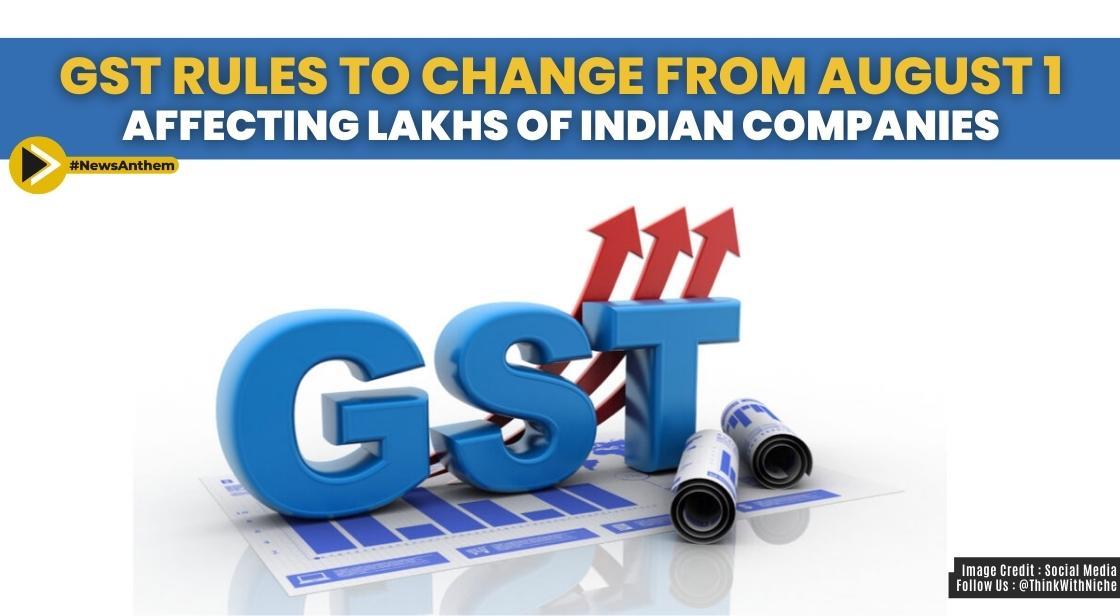GST Rules to Change from August 1, Affecting Lakhs of Indian Companies

News Synopsis
The Ministry of Finance in India has issued a circular announcing changes to the Goods and Services Tax (GST) system. Starting August 1, 2023, businesses with an annual turnover of over Rs 5 crore will be required to generate e-invoice for all B2B transactions. This threshold has gradually decreased from Rs 500 crore in 2020 to Rs 5 crore in 2023, making e-invoicing mandatory for a larger number of companies.
CBIC Rolls Out Automated Return Scrutiny Module for GST Returns
In related news, the Central Board of Indirect Taxes & Customs (CBIC) has introduced an Automated Return Scrutiny Module for GST returns in ACES-GST backend application for Central Tax Officers. The module allows tax officers to scrutinize GST returns of Centre Administered Taxpayers selected based on data analytics and identified risks. The module displays discrepancies associated with a return, and tax officers can interact with taxpayers through the GSTN Common Portal for communication of discrepancies noticed under FORM ASMT-10, receipt of taxpayer's reply in FORM ASMT-11, and subsequent action in the form of either acceptance of reply in FORM ASMT-12 or issuance of a show cause notice or initiation of audit/investigation.
These changes in GST rules and the implementation of the Automated Return Scrutiny Module for GST returns aim to improve compliance verification and reduce fraudulent activities. It is important for businesses in India to prepare for these changes and ensure timely compliance.
According to a press release, "In order to implement this non-intrusive means of compliance verification, CBIC has rolled out the Automated Return Scrutiny Module for GST returns in the ACES-GST backend application for Central Tax Officers this week. This module will enable the officers to carry out scrutiny of GST returns of Centre Administered Taxpayers selected on the basis of data analytics and risks identified by the System,"
In addition to the e-invoicing mandate, the Central Board of Indirect Taxes & Customs (CBIC) has rolled out an Automated Return Scrutiny Module for GST returns. This module is designed to enable tax officers to carry out scrutiny of GST returns of Centre Administered Taxpayers selected on the basis of data analytics and risks identified by the system. The module aims to provide a non-intrusive means of compliance verification, and the discrepancies identified through the system will be communicated to taxpayers for rectification.
ThinkWithNiche News' conclusion
The changes in GST rules in India are set to impact millions of companies across the country. Starting from August 1, 2023, businesses with a turnover of over Rs. 5 crore will be required to generate e-invoices for B2B transactions. This is a significant reduction from the initial threshold of Rs. 500 crore that was implemented in 2020. The implementation of e-invoicing is aimed at streamlining tax compliance, reducing errors, and improving transparency in transactions.
Overall, the changes in GST rules and the implementation of new compliance systems indicate the government's continued efforts to improve tax compliance and transparency in India. While the transition to e-invoicing may pose challenges for businesses initially, it is expected to provide long-term benefits by reducing errors and improving efficiency.
You May Like









